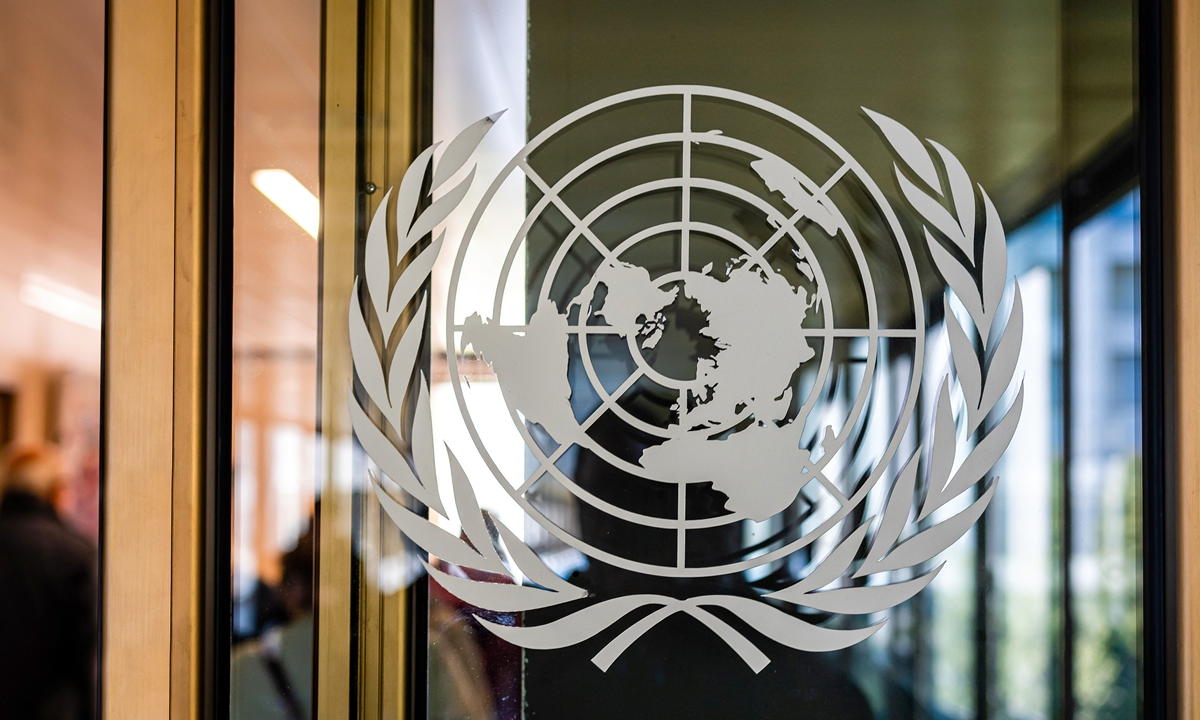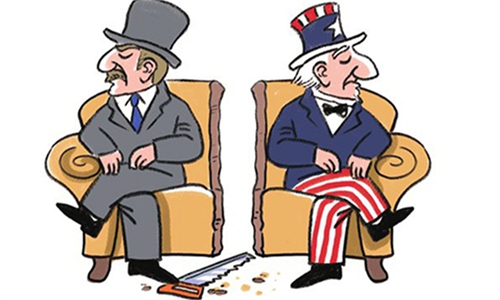
Photo: VCG
Editor's Note:
With the unexpected COVID-19 pandemic still raging in many parts of the world, multilateral cooperation is seen as the sole solution. The United Nations (UN) is considered the pillar of upholding multilateralism. Whereas this year marks the 75th anniversary of the founding of this international organization, a conference organized by the UN Associations of China and the Chinese People's Institute of Foreign Affairs invited dozens of international experts to discuss the role of the UN amid global uncertainties. The Global Times selected the opinion of three participants.
Kishore Mahbubani, a distinguished fellow at the Asia Research Institute of the National University of Singapore who served as Singapore's permanent representative to the UN
Is the UN a sunrise or sunset organization? For those of us in the East, in Asia, and in the third world, we basically see the UN as a sunrise organization, and in the West, even though the West is divided, it sees it as a sunset organization. The US is walking away from the organization, walking away from treaties, and recently walking away from the World Health Organization (WHO). And even though the European countries say they support the UN and support multilateralism, they starve the UN of resources and money.
So what can we do to strengthen the UN and make sure it means a sunrise? First, let's raise the amount of mandatory funding to the UN. China can lead the way in explaining why we need a stronger long-term funding for a body like the WHO. I think this is one area where China can provide the leadership because China has shown itself to be very generous when it comes to supporting international organizations.
Second, if you want to understand the views of 7.8 billion people in the world, then what we need to do is to revive the UN General Assembly. The role of the UN General Assembly is to serve as the parliament on land. The US and the rest of the West are trying to sideline the UN General Assembly. We should restore the role of it, then the US and other countries can hear the words of the rest of the world very clearly. At the same time, we also need to build up a strong public consensus and only mention in favor of multilateralism and in favor of the UN.
COVID-19 has taught us that all the countries are on the same boat. Instead of cooperating to fight it, the US has argued about who started it and who is responsible for it. It is like when a fire starts, people shouldn't argue about who started the fire, but put out the fire first. Now if we want to make sure that the geopolitical contest between the US and China does not distract the world, we have to strengthen multilateral institutions.
Ruan Zongze, executive vice president at the China Institute of International Studies
The world is now standing at a crossroads of history. With the occurrence of the global coronavirus pandemic, the world is witnessing immense upheavals and extensive readjustments. It is a test moment for the UN.
Great powers used to work together to fight against either terrorism or financial crisis, nevertheless, they failed to join hands together this time to fight against COVID-19. To make it even worse, the US went further to play a blame game, and boycott any cooperation to combat the virus with the rest of the international community. Clearly there are two viruses: one is the COVID-19 pandemic, the other is political.
In the context of complicated international relations, the rivalry and clash between multilateralism and unilateralism is getting increasingly fierce, which will largely define the future world order.
Admittedly, multilateralism is facing new challenges. On the one hand, a rapidly advancing globalization has given rise to the emergence of innumerable regional and global multilateral mechanisms, while the prevalence of enhancing interconnectivity has further uplifted the common interests of the international community.
"America First" is nothing but a disguise for unilateralism, and it transforms the US from a provider of international public goods into a lone ranger that goes its own way. Unilateralism has been widely opposed and rejected by the international community. More and more countries have come to the conclusion that they must join hands and help each other in the face of imminent global challenges, and that multilateral mechanisms are an effective instrument to address these challenges.
Wu Hongbo, China's special representative on European affairs who served as UN under-secretary-general for economic and social affairs
The world is undergoing unprecedented changes. What are the factors behind the changes?
First, the number of countries participating in global governance has increased significantly. Second, the world's political pattern has changed. The West used to be the core in global governance, but with the development of middle powers, Western countries have shown insufficient ability and will to dominate global affairs. Third, economic globalization has met unprecedented challenges. Developed countries have promoted and benefited from economic globalization. As the world calls for sharing the development dividends, the US trade wars have dealt a heavy blow to economic globalization and multilateral trade.
Fourth, contributors to global economic development have changed. Since the Industrial Revolution, developed countries had been the major driving forces of global economic development. But in 2018, developing countries contributed to 80 percent of the world's economic growth, and China's contribution has exceeded 30 percent for several years. The collective rise of developing countries has shifted the world's economic focus.
Fifth, frontline technologies such as cloud computing, artificial intelligence and block chains are changing people's working and lifestyles fast.
For the common goal of development, countries have put aside ideological differences and engaged in unity and cooperation. This is why the UN was founded and has operated for 75 years. But now, the basis for unity and cooperation is being weakened. Humanity is in desperate need of new values to consolidate this basis. A crucial option is the one that China-proposed: a common destiny for mankind. This fits the development need of this era and is the core of China's idea of a global order.

